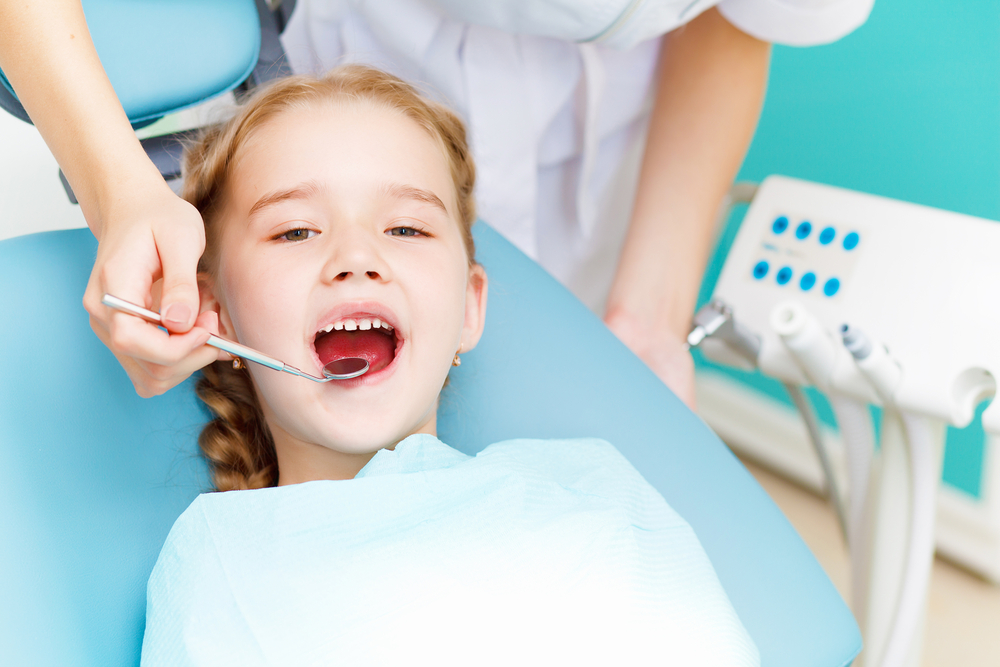
All children are born with primary teeth, or more commonly referred to as baby teeth. On average, 60% of children will experience some level of tooth decay that affects their baby teeth, and while these teeth are temporary, preventative dentistry is still necessary to repair cavities.
Left untreated, cavities, and tooth decay can cause immediate severe harm and negatively affect how a young mouth develops.
Healthier Teeth Equals Better Overall Health
For small cavities, there is a possibility that they can repair themselves through the process of remineralization. If your child’s dentist catches a cavity when it has just started, your dentist can give you tips on how to better care for your child’s teeth to prevent cavities from becoming more significant. It’s essential to follow the advice of your trusted dentist, who knows about treating children. When left untreated, tooth decay can lead to infection, difficulty in chewing, and even malnutrition.
A Healthy Smile Boosts Confidence
Discolored or missing teeth can lead to children developing a poor self-image of themselves. If they feel that their smile or teeth don’t look healthy or white, they may begin to refrain from smiling and wanting to show their teeth. This lack of confidence in their appearance will have a lasting effect on the belief in themselves and their social lives. A healthy, straight smile is one of the best ways to promote confidence in an adolescent.
Orthodontics Can Potentially Be Avoided
Keeping baby teeth as long as possible helps to guide the development and positioning of their adult teeth. Primary teeth that must be pulled or have rotted from infection can create orthodontic issues that accentuate the need for braces and other treatments. Losing baby teeth too early can result in a child needing braces for a longer time frame, or even force children who wouldn’t have required braces to need orthodontics for correcting their smile.
Normal Speech Development
Untreated cavities can also lead to problems with speech development. Teeth are a part of speaking and can affect the sounds that children can make when speaking. However, if they have cavities and have teeth rot and fall out, it can begin to cause speech impediments that will affect the child’s ability to speak correctly and can have lasting effects on their confidence in public speaking and communicating with others.
Preventative Dentistry Strategies
Preventative care is an essential part of maintaining excellent oral hygiene. At Hinsdale Dentistry, we don’t aim just to treat common dental issues. Our goal is always to help you in preventing them from forming in the first place. Avoiding the most commonly seen dental matters, such as cavities, can be simple. Follow these preventative dentistry strategies to protect your little one’s smile.
At-home oral hygiene – Brushing and flossing at least twice a day will help to remove dental plaque. If not removed, plaque will build up and produce dental tartar with acid-producing bacteria that cause tooth decay and gum disease.
Fluoride – Fluoride strengthens teeth, prevents tooth decay, and can easily be found in toothpaste, mouth rinses, and public water.
Balanced Diet – Avoiding foods with sugars and carbohydrates and focusing on a balanced diet will decrease the chances of developing gum disease and tooth decay.
Regular dental visits – Scheduling regular checkups every six months will allow your dentist to check for oral growth and development, including an assessment of cavity development.
Teeth cleanings and exams – Professional cleanings are recommended every six months to remove dental plaque and stains as well as to check for signs of tooth decay.
Sealants – Dental sealants are a thin composite coating placed on the chewing surfaces of permanent back teeth to protect them from tooth decay.
Orthodontics – A bad bite can impair eating, speaking, and crooked teeth are more challenging to keep clean and cavity-free.
Preventative Over Corrective
Your child’s oral health is directly linked to their overall health. For this reason, preventative dentistry is a critical piece in giving your child a healthy childhood. Oral diseases can interfere with eating, speaking, daily activities, and self-esteem development. Additionally, preventative treatments are less expensive than corrective dentistry, and they will help your child keep their natural teeth for a lifetime.
Contact Hinsdale Dentistry to discuss how your child can benefit from preventative dentistry treatments.